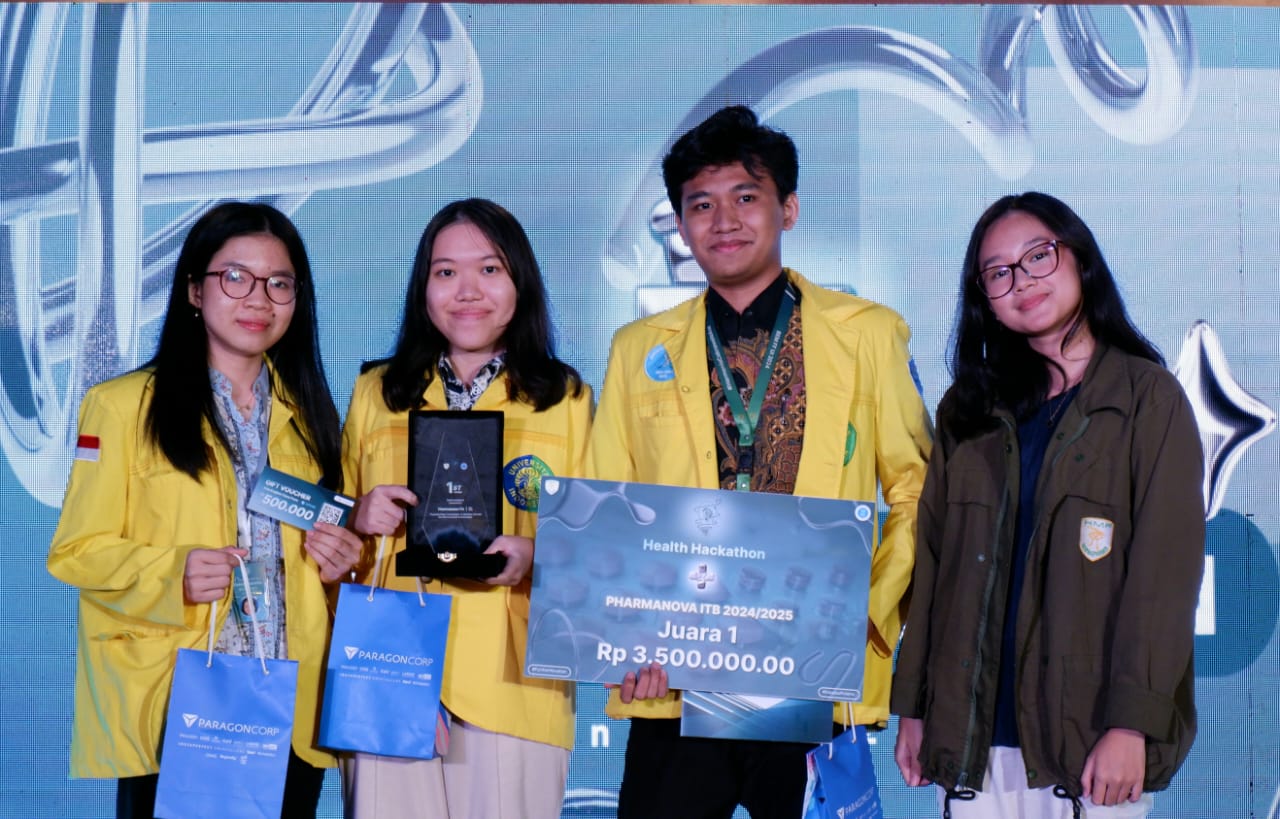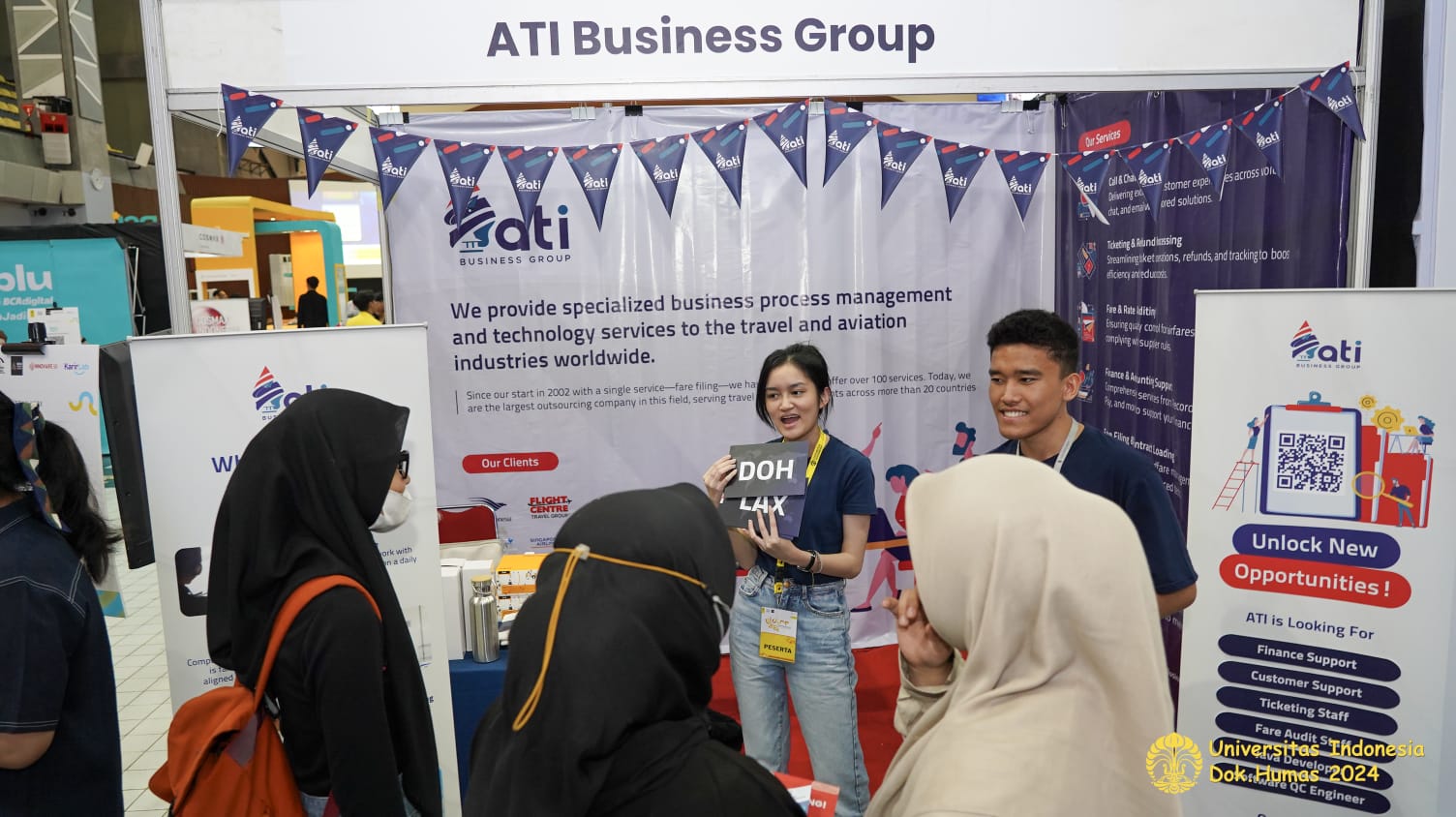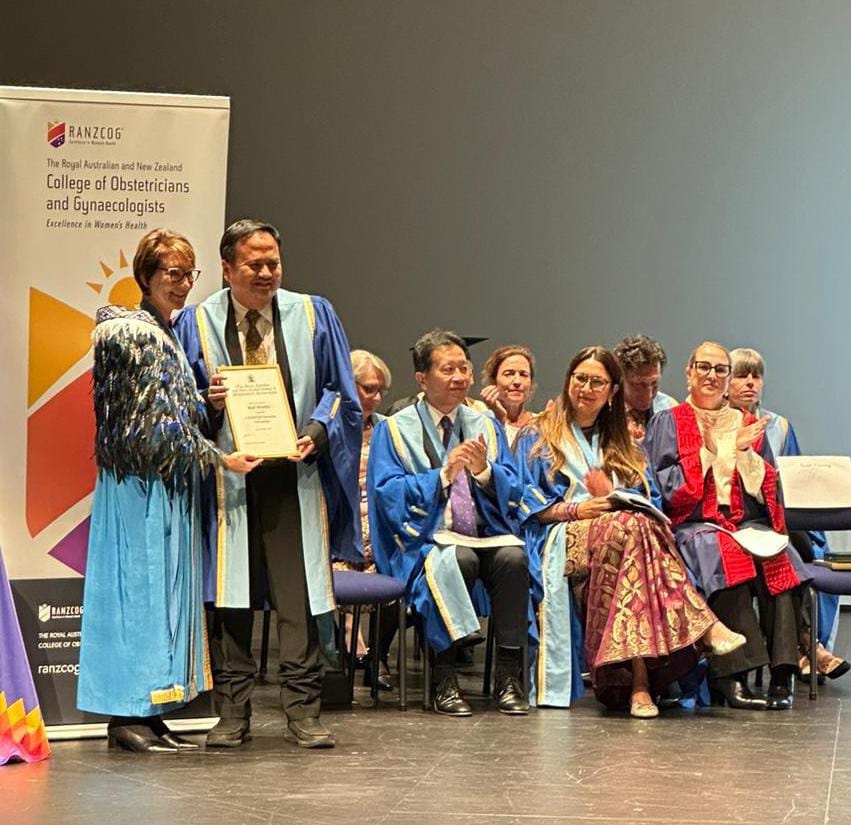Indonesia is a global model in development and health, yet Indonesia has three hurdles of nutritional problems, such as malnutrition, overweight, and micronutrient deficiencies in mothers, children, and adolescents. This statement was conveyed by Prof. Dr. dr. Rina Agustina, M.Gizi, in her inauguration speech as professor on Saturday (27/1), in the IMERI Hall of Faculty of Medicine UI Salemba.
Prof. Rina said that nutritional and health problems in mothers, children, and adolescents are very important to be addressed. Moreover, Indonesia is on the verge of a demographic bonus until 2035, so it is necessary to improve the quality of human resources. Therefore, Prof. Rina brings innovation in modulating the gastrointestinal microbiota and emphasizing diet quality and sustainable food to improve the intelligence and health of mothers, children, and adolescents.
She found that administering appropriate probiotics can reduce the risk of diarrhea in children, optimize children’s growth and development, and strengthen immunity while a high-quality diet can improve cognitive function, health, education, and economic well-being. Diet can be measured from nutritional adequacy which provides energy and nutrients according to individual needs; food variety includes consuming a variety of foods such as grains, fruit, vegetables, fish, meat, nuts, and dairy products; and moderation, avoiding or limiting foods high in fat, sugar, and sodium. On the other hand, food safety is also an important aspect of a quality diet.
While involved as commissioner in the EAT-LANCET Commission Report in Lancet in 2019, Prof. Rina studied the concept of a planetary healthy diet that emphasizes food diversity and sustainable eating patterns. This aims to reduce the consumption of processed foods and increase access to nutritious foods to make the population healthy while maintaining the ecological balance of the planet.
The EAT-LANCET Commission describes “Fill My Plate” as a planetary healthy diet. Half a plate contains calories from whole grains, vegetable protein, unsaturated fats, and low or moderate animal protein while the rest contains vegetables and fruit. This concept is in line with the Indonesian Food Pyramid and the Contents of My Plate from the Balanced Nutrition Guidelines by the Indonesian Ministry of Health.
With the diversity of local food, Indonesia has great potential to adopt a balanced and sustainable diet. This requires policy support, health and food system transformation, and behavioral changes. “Of course, we need a sustainable program to support scaling up to the national level to realize Indonesia’s golden generation. In the future, the various research can become the basis for applied and advanced research, especially in the process of downstream interventions and innovative development,” said Prof. Rina.
The research entitled “Feeding the Future: The Role of Diet Quality, Gastrointestinal Microbiota, and Sustainable Food to Improve the Intelligence and Health of Mothers, Children, and Adolescents Towards Indonesia’s Golden Generation”, Prof. Rina was confirmed as Professor in the Field of Nutrition, Faculty of Medicine UI. The inauguration procession was led by the Chancellor, Prof. Ari Kuncoro, S.E., M.A., Ph.D.
Moreover, Prof. Rina also conducted research on other topics. They are Relationships of Child, Parents, and Environment-Associated Determinants with Diet Quality, Physical Activity, and Smoking Habits among Indonesian Urban Adolescents (2022); Nutrient Intakes of Pregnant and Lactating Women in Indonesia and Malaysia: Systematic Review and Meta-Analysis (2023); and The Impact of Government Pandemic Policies on the Vulnerability of Healthcare Workers to SARS-CoV-2 Infection and Mortality in Jakarta Province, Indonesia (2024).
Prof. Rina completed her medical education at the Faculty of Medicine, Gadjah Mada University in 1997; Master of Nutrition Science at the Faculty of Medicine UI in collaboration with SEAMEO-TROPMED RCCN UI in 2000; and the Doctor Human Nutrition program, Wageningen University, Netherlands in 2012. Currently, she serves as Head of the Human Nutrition Research Center Cluster, IMERI UI.



